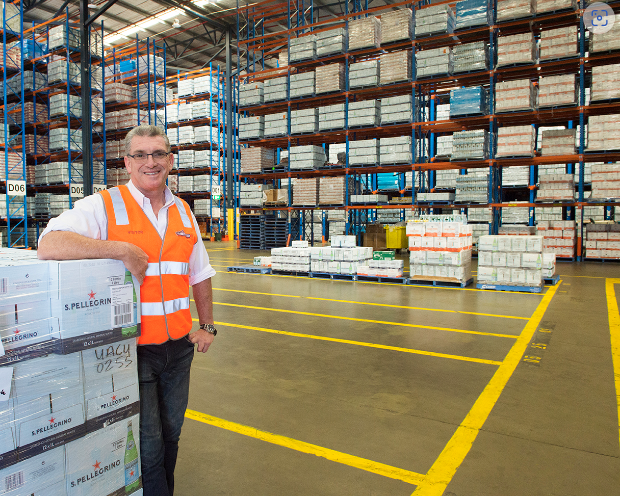KiK Textilien und Non-Food GmbH continues to rely on the supply chain expertise of the Ehrhardt Partner Group (EPG). Following the successful launch of the LFS warehouse management system at the newly built distribution centre in Rabowice, Poland, the system is now also fully operational at the Kostolné Kračany site in Slovakia.
With the completion of the hypercare phase, KiK reports an entirely positive outcome: a structured, collaborative implementation, in-depth process knowledge, and a smooth go-live — both in Poland and Slovakia. Together, the two modern logistics centres form the backbone of the supply network for over 4,200 stores across 14 European countries.
The implementation of LFS was not just a technical challenge, but above all a collaborative project that crossed national borders. The central logistics team in Bönen, local staff on site, the SAP team, and EPG’s supply chain specialists worked closely together in a tightly coordinated effort. The excellent alignment among all parties involved was particularly praised. “The way the go-live was executed on site — it was truly first-class,” emphasized Michael Frölich, Managing Director of KiK Logistik GmbH. “The project team was exceptionally well-prepared, communicated as equals, and was consistently solution-oriented.”
142,000 Picks per Day
Kostolné Kračany demonstrates what modern warehouse logistics can achieve. Covering 46,000 square metres and offering around 40,000 pallet spaces, the LFS system manages all processes— from chaotic warehousing with an integrated FIFO principle to precise inventory traceability. The average daily throughput is 112,000 picks, with a record high of 142,000 picked units in a single day. In addition to textiles, the facility also handles seasonal non-food items such as decorations and toys. Specialized areas support the storage of hazardous materials and temperature-sensitive products like confectionery and beverages. Modern mobile data entry (MDE) devices and tablets are used throughout the facility, ensuring smooth process integration and transparent quality control from goods receipt to shipping.

Unified IT Structures as a Foundation for Scalability and Efficiency
With the implementation of LFS in Poland and Slovakia, KiK is pursuing a clear digital strategy: standardizing processes, harmonizing IT structures, and integrating new locations more quickly. Integration with the central SAP ERP system was achieved via standardized interfaces. Numerous custom extensions, such as for managing external warehouses or handling complex picking logic, highlight the system’s flexibility. A key success factor was the well-designed training concept. Employees were prepared for the new LFS using a hands-on approach in a test system. Lessons learned from the Polish rollout were deliberately applied to the implementation in Slovakia — an excellent example of effective knowledge transfer.
“The successful implementation of LFS at two international sites is the result of exceptionally close and trusting collaboration,” says Alain Linder, Team Lead Project Management Consulting at EPG. “Strong process knowledge on both sides, clear communication, and a shared goal made this project a true model for success.”
At KiK Logistik’s headquarters in Bönen, preparations for the next expansion phase are already underway. In the future, LFS will also control a fully automated high-bay warehouse with pallet conveyor technology at that location.
Future-Oriented: Real-Time Data, Transparency, and Paperless Processes
After going live, KiK continues to work closely with EPG to further develop its digital logistics landscape. Already today, the analytics tool TIMESQUARE provides meaningful real-time KPIs on pick times, warehouse utilization, and inventory transparency — an essential foundation for data-driven optimization.
The next milestone is the introduction of a digital delivery note. Currently, a physical packing list is still included in each shipment, but going forward this step will be completely paperless, from goods receipt to shipping. “With LFS, we haven’t just implemented a powerful warehouse management system — we’ve created a future-ready platform that evolves with our needs, both technically and operationally,” summarizes Frölich.
Similar news








